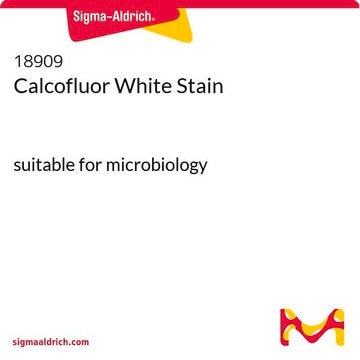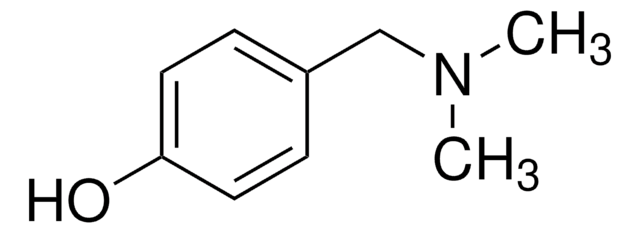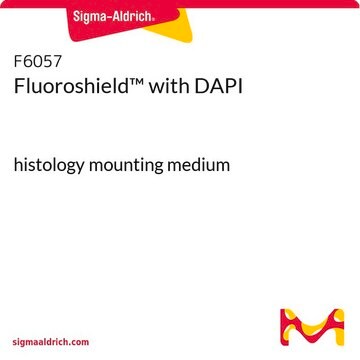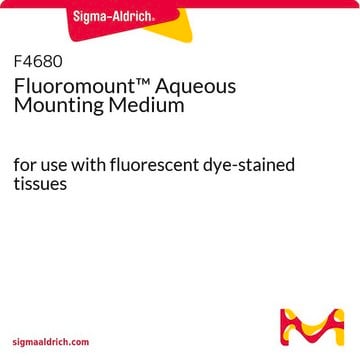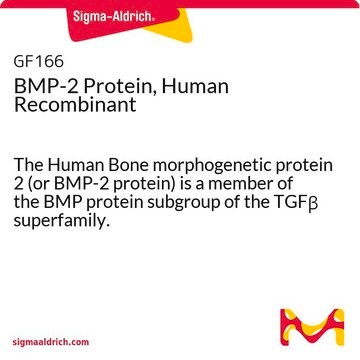D9542
DAPI
for nucleic acid staining
Synonym(s):
4′,6-Diamidino-2-phenylindole dihydrochloride, 2-(4-Amidinophenyl)-6-indolecarbamidine dihydrochloride, DAPI dihydrochloride
About This Item
Recommended Products
grade
for molecular biology
Quality Level
Assay
≥98% (HPLC)
form
powder
technique(s)
transfection: suitable
solubility
H2O: 20 mg/mL
PBS: insoluble
ε (extinction coefficient)
30 at 263 nm in H2O at 1 mM
fluorescence
λex 340 nm; λem 488 nm (nur DAPI)
λex 364 nm; λem 454 nm (DAPI-DNA-Komplex)
suitability
suitable for fluorescence
storage temp.
2-8°C
SMILES string
Cl.Cl.NC(=N)c1ccc(cc1)-c2cc3ccc(cc3[nH]2)C(N)=N
InChI
1S/C16H15N5.2ClH/c17-15(18)10-3-1-9(2-4-10)13-7-11-5-6-12(16(19)20)8-14(11)21-13;;/h1-8,21H,(H3,17,18)(H3,19,20);2*1H
InChI key
FPNZBYLXNYPRLR-UHFFFAOYSA-N
Looking for similar products? Visit Product Comparison Guide
Related Categories
General description
Application
- DNA staining in agarose gels
- analysis of changes in DNA during apoptosis
- detection of mycoplasma
- photofootprinting of DNA
- immunofluorescent staining of cells
DAPI has been used:-
- in rapid monitoring of microbial contamination
- in chromosomal banding technique
- in detection of apoptotic cells
- in fluorescence microscopy to track the DisA (DNA integritiy scanning protein) movement on Bacillus subtilis DNA
- to stain mature pollen grains(0.5 mg/ml)
Biochem/physiol Actions
Caution
related product
Signal Word
Warning
Hazard Statements
Precautionary Statements
Hazard Classifications
Skin Irrit. 2 - Skin Sens. 1A - STOT SE 3
Target Organs
Respiratory system
Storage Class Code
11 - Combustible Solids
WGK
WGK 3
Flash Point(F)
Not applicable
Flash Point(C)
Not applicable
Personal Protective Equipment
Choose from one of the most recent versions:
Certificates of Analysis (COA)
Don't see the Right Version?
If you require a particular version, you can look up a specific certificate by the Lot or Batch number.
Already Own This Product?
Find documentation for the products that you have recently purchased in the Document Library.
Customers Also Viewed
Articles
Cell cycle regulates vital processes like DNA repair, cancer prevention. Four stages: G1, S, G2, M. NTPs don't permeate membranes.
Available Fluorescent in situ hybridization (FISH) procedures, reagents and equipment.
High titer lentiviral particles for LC3 variants used for live cell analysis of cellular autophagy.
Millicell® hanging cell culture inserts for staining and microscopic analysis directly from the insert. Learn to utilize hanging cell culture inserts in barrier measurements.
Protocols
ICC Cell Capture Imaging Reagent simplifies imaging, ideal for rare cell and low cell count samples.
How to stain organoids? A complete step-by-step protocol for immunofluorescent (IF) and immunocytochemical (ICC) staining of organoid cultures using antibodies
Related Content
Step-by-step protocol for generating apical-out human gut organoids for microbiome, ADME/Tox, viral and gastrointestinal related disease research. See the complete organoid culture protocol.
Three-dimensional (3D) printing of biological tissue is rapidly becoming an integral part of tissue engineering.
Our team of scientists has experience in all areas of research including Life Science, Material Science, Chemical Synthesis, Chromatography, Analytical and many others.
Contact Technical Service



